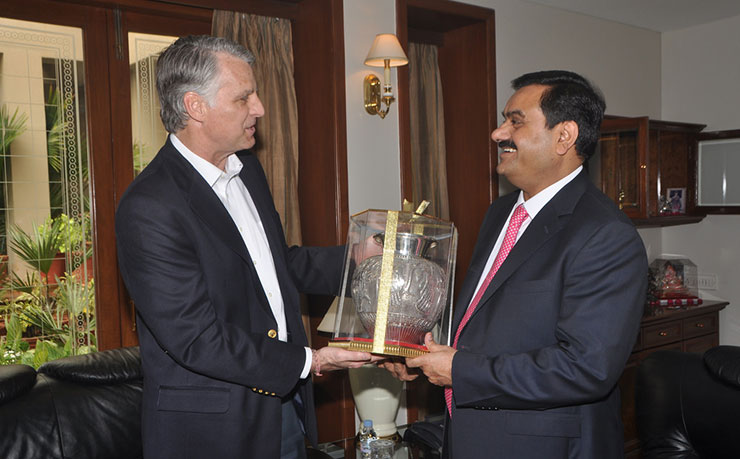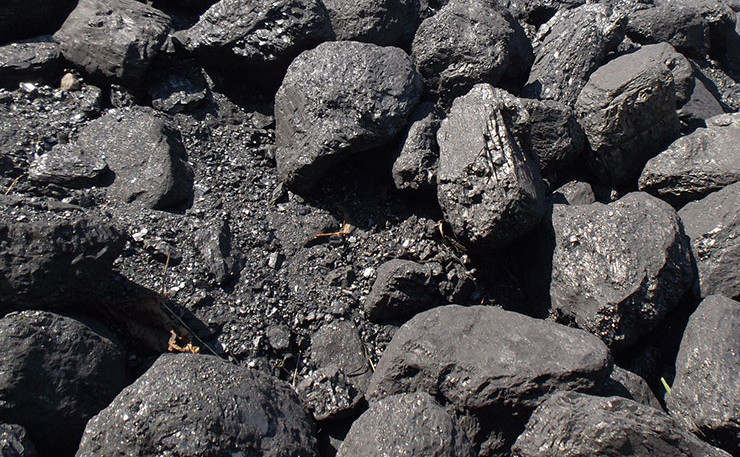The argument against the Carmichael coal mine is strong. But the argument put forward by the ABC, not so much. Geoff Russell explains.
It’s been a long time since I did a mathematics exam, but I presume they still ask students to show the “workings”; the method by which you arrived at your answer.
The recent 4 Corners program Digging into Adani, seems to suggest we should leave the Carmichael coal in the ground, which is pretty much the right answer, but the workings, the arguments, the reasoning? Unfortunately, these are disturbingly flawed, starting from the opening scenes focusing on some tragic victims of coal dust.
The Adani coal will be used in India to replace wood. As pollutants go, wood smoke and almost every other thing associated with the wood-as-energy industry makes coal look as pure and clean as the driven snow. As tragic as one child with a breathing problem from coal is, 1,000 children dead from wood smoke is worse.
 The right way to proceed is to look at all the data and relationships and draw a conclusion. The wrong way is to find some poor child to front a TV camera and tug at the heart strings. The global toll from indoor air pollution is about 4 million, with most of it from wood and still plenty in India, despite being slashed by rapid electrification; thanks to coal.
The right way to proceed is to look at all the data and relationships and draw a conclusion. The wrong way is to find some poor child to front a TV camera and tug at the heart strings. The global toll from indoor air pollution is about 4 million, with most of it from wood and still plenty in India, despite being slashed by rapid electrification; thanks to coal.
Journalist Michael Long’s focus on a few individuals is straight out of the climate denial handbook of dodgy arguments. For years they’d focus on a few individual examples of cold weather to argue against the clear, statistically-demonstrated trend. Focus on the individual and ignore comparative data shouldn’t fly as a strategy for anything claiming to be better than the gutter tabloids. It certainly shouldn’t fly for the ABC and 4 Corners.
If you want to argue that Adani shouldn’t send coal to India on the basis of human health, then you need to show that the health impacts of coal in a few ports will outweigh the massive benefits of displacing wood in millions of Indian households.
The last 10 years of climate change denial wars should have taught everybody involved about the full range of dodgy arguments that can cloud a debate. Resisting dodgy arguments shouldn’t just be something we do when they come from people who disagree with us, we should object to any use of junk arguments regardless of source; be they inadvertent or deliberate.
The health argument was one of three major arguments used by Long in his documentary. It was rubbish. As for the rest, I’ll leave the best until last; his rather irrelevant but utterly compelling corruption line, but his third argument is even worse than his first.
Starting at rock bottom, it’s hard to see how Long could come up with a worse argument, but he did. He wheeled out Australia’s largest climate, health and eco-vandals; our graziers. Talk about pots, kettles and black as coal dust.
It’s worth restating the numbers on Australian grazing animals and their climate impact. The raw data is here, in our submissions to the United Nations Framework Convention on Climate Change (UNFCCC). Table 3s1 shows that our grazing animals (sheep and cattle) produce a little over 2 million tonnes of methane annually. The non-grazers are largely irrelevant.
Pigs for example produce just 3,500 tonnes of methane. According to the best available climate science, each tonne of methane has an impact on warming over the next 20 years equal to 105 tonnes of carbon dioxide. So the grazing industry has a warming impact over the next 20 years equal to 210 million tonnes of CO2.

Table 1s1 puts the total carbon dioxide output of public electricity (including heat production) at about 187 million tonnes of CO2. There’s also some other climate impacts from mining, but I’m trying to keep this simple so I’m also ignoring some significant extra cattle impacts, like deforestation emissions.
And then there’s health. Red meat in general, and we should factor pigs back in at this point, is a carcinogen. It produces thousands of bowel cancers annually. Granted this isn’t the same as killing children, but it’s not a barrel of laughs for those it affects.
Last, but not least, cattle have been the biggest killers of the Great Barrier Reef for 30 years; slashing forests and increasing the fertiliser and sediment loads in rivers leading out to the reef all along the north Queensland coast. Our so-called environment movements have given our livestock industries a free ride for decades.
The current attitudes are not surprising with a cattle breeder heading up the Greens, but that’s part of a grand tradition with major “green” groups being funded in all kinds of direct and indirect ways by the cattle industry.
It’s hard to find an industry worse in all environmental and health respects than coal, but grazing is it. And if you want expert independent opinion on ground water impacts of Adani’s Carmichael plan, then you’d be much better asking an expert than a cowboy.
Lastly, we come to the best of Long’s arguments; Adani’s business methods. This is a double-barrelled attack, claiming not only corruption on a breathtaking scale in India over many years and in multiple projects, but also what looks like plans to systematically dodge tax by the use of tax havens. These are coupled with some questionable looking subsidies.
This is compelling viewing. Who can resist a good story of graft and corruption, but is it a good argument to leave the Carmichael coal in the ground?
 If it’s true, then we shouldn’t touch Adani with a barge pole, unless of course, all our public officials are honest, in which case what happened in India may be viewed as fascinating but perhaps irrelevant. But, on the other hand, nobody wants to reward companies for bad behaviour; regardless of where it occurred.
If it’s true, then we shouldn’t touch Adani with a barge pole, unless of course, all our public officials are honest, in which case what happened in India may be viewed as fascinating but perhaps irrelevant. But, on the other hand, nobody wants to reward companies for bad behaviour; regardless of where it occurred.
But now let’s suppose the charges are all false. Or equivalently, that it wasn’t Adani proposing to mine this coal, but some squeaky clean German, French or British company with a great governance record.
Would it, or more precisely, should it, change anybody’s opinion of whether the Carmichael coal should be mined? It certainly shouldn’t. The slam dunk argument against digging up the Carmichael coal is the climate science. We don’t need anything else.
But that argument leaves us in the firing line. Each year, we Australians are using about double the coal that Carmichael would produce. Why don’t we just halve our own coal use? This would be a carbon-neutral way of freeing up 60 million tonnes of coal for export to displace the wood smoke that is killing Indians and their children. Why are we still using coal?
We are only still burning coal because 30 years of anti-nuclear activism stopped us replacing it with uranium. And therein lies another tale of incredibly bad working. Dodgy anti-nuclear arguments based on obsolete science that should have been called at the time. But in this case it wasn’t just the working that was wrong, it was the conclusion also.
And we are all paying the price for not being solidly rational and science-based in our decision-making.
Donate To New Matilda
New Matilda is a small, independent media outlet. We survive through reader contributions, and never losing a lawsuit. If you got something from this article, giving something back helps us to continue speaking truth to power. Every little bit counts.





